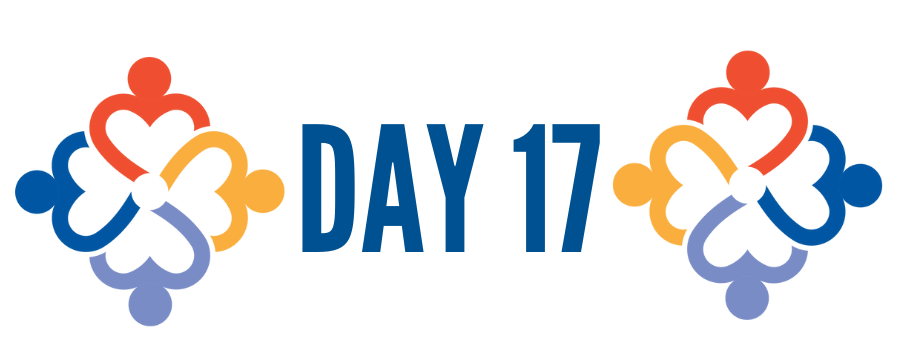
Day 17: Showing up as your whole self
For many people holding oppressed identities, navigating spaces requires a careful calculation of how much of themselves to show. Black, Indigenous, and other People of Color (BIPOC) often engage in a practice called code-switching, adapting their speech and behaviors to their environment. This is something many of us have experience with, regardless of identity. We might speak more casually and directly to friends in our own home than we would while giving an in-office presentation. But, for BIPOC, code-switching is much more than just adjusting to an environment, it requires individuals to hide a part of their cultural self in order to appear more respectable and deserving of being in a space. Four in 10 Black and Hispanic adults report having to change the way they talk around people of other races and ethnicities, especially non-Hispanic Whites (Pew Research Center, 2019).
Masking is a coping strategy that some use to hide behaviors associated with their disability. For example, an autistic person may work to suppress stimming behaviors like flapping their arms or they may force themselves to make intentional eye contact. These are often a result of social pressures related to ability, gender, and other social considerations.
Some transgender people experience an extraordinary burden to try to pass or to present themselves in such a way that others may not presume their transgender experience. These pressures often push transgender people toward unrealistic gendered beauty standards that cisgender people are not held to.
Each of these examples highlights the pressures people with oppressed identities are under to adapt to and assimilate to dominant culture(s), often to protect themselves and/or to be safe. You may have heard organizations or individuals talk about the need for people to be able to show up as their full, authentic selves. For this to be possible, it requires all of us to think deeply about what we consider normal, acceptable, respectable, and/or deserving of resources and care. What feelings show up when people act differently from us? Until we attend to these experiences, others will never be able to truly show up as who they are.
Today’s Challenge
Read:
The Costs of Code-Switching, Harvard Business Review by Courtney L. McCluney, Kathrina Robotham, Serenity Lee, Richard Smith, and Myles Durkee (Nov 2019) [16 min read] This article explores the positive and negative outcomes related to code-switching for Black employees as evidenced in a research study. The authors highlight individual and organizational considerations.
Passing by Trans Hub [4 min read] Passing as a concept for transgender people is complicated. This article explains in more depth what passing is and isn’t for different people.
Watch:
Autistic Masking in 3 Minutes by Orion Kelly (Jun 2022) [3 min watch] YouTuber Orion Kelly explains masking and his own experiences with the practice.
Discuss:
- What assumptions or expectations do you have about normative speech and behaviors?
- What can you do in your personal and professional life to create more welcoming and affirming spaces for others to show up as their full, authentic selves?
